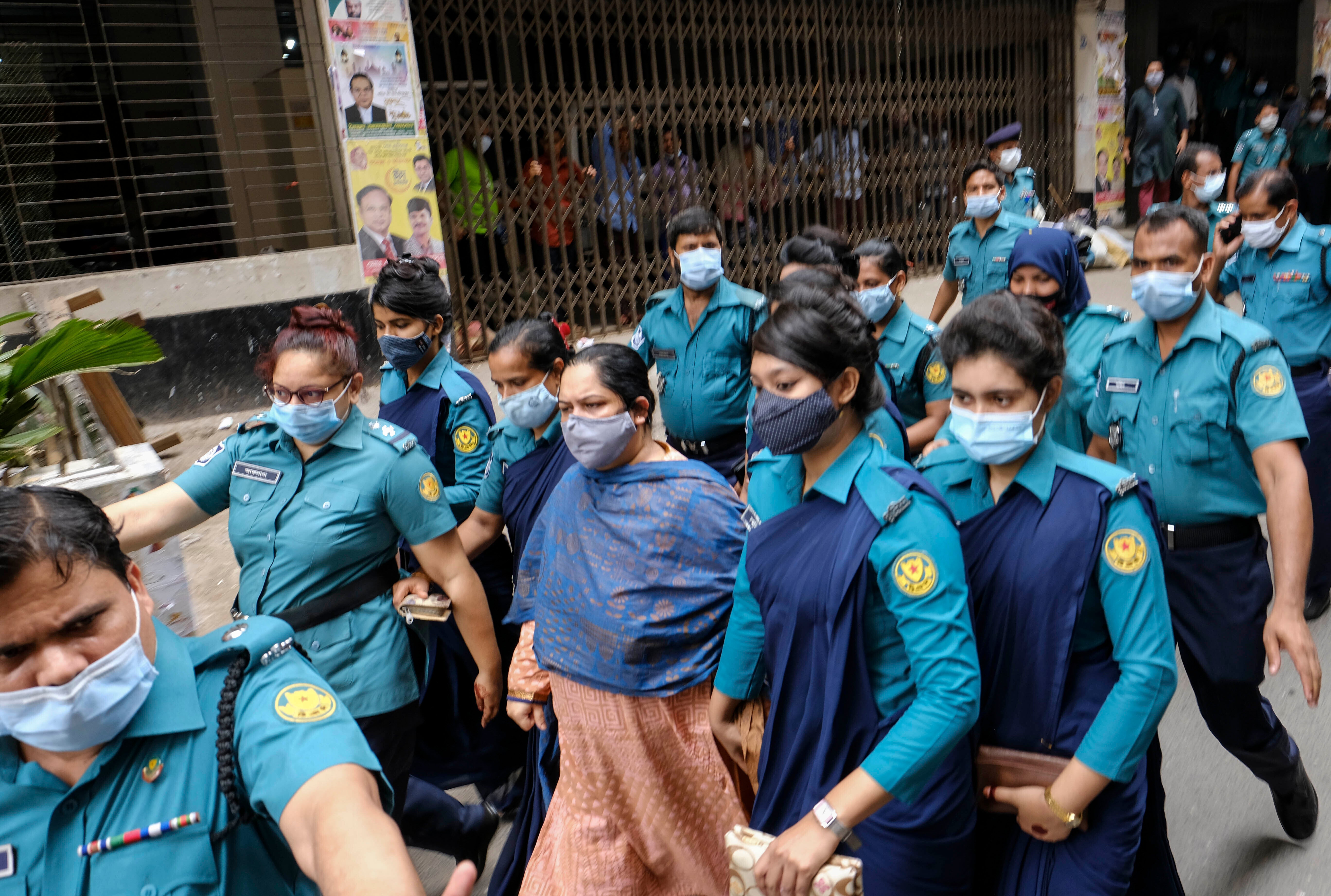Bangladesh arrests journalist known for unearthing graft
Police in Bangladesh's capital have arrested a prominent journalist on charges of stealing and photographing sensitive state information

Your support helps us to tell the story
From reproductive rights to climate change to Big Tech, The Independent is on the ground when the story is developing. Whether it's investigating the financials of Elon Musk's pro-Trump PAC or producing our latest documentary, 'The A Word', which shines a light on the American women fighting for reproductive rights, we know how important it is to parse out the facts from the messaging.
At such a critical moment in US history, we need reporters on the ground. Your donation allows us to keep sending journalists to speak to both sides of the story.
The Independent is trusted by Americans across the entire political spectrum. And unlike many other quality news outlets, we choose not to lock Americans out of our reporting and analysis with paywalls. We believe quality journalism should be available to everyone, paid for by those who can afford it.
Your support makes all the difference.Police in Bangladesh's capital have arrested a journalist known for her strong reporting against official corruption in the South Asian country where journalists are often threatened with dire consequences for professional work.
Rozina Islam, a senior reporter with the country’s leading Bengali-language Prothom Alo daily newspaper, was confined for more than five hours till late Monday in a room of a personal assistant of the secretary of the Ministry of Health, said her younger sister Sabina Parvin.
A secretary is the top bureaucrat of a ministry, and the room was inside the Bangladesh Secretariat, the downtown Dhaka premises where almost all government ministries are located.
She was then handed over to police and faces charges under the Penal Code and Official Secrets Act for the theft and photographing of sensitive state documents, said Harun-or-Rashid, an additional deputy commissioner of Dhaka Metropolitan Police.
On Tuesday morning, she was produced before a court in Dhaka where police sought that she be remanded to their custody for five days to be interrogated.
According to the case documents seen by The Associated Press, Islam is alleged to have used her mobile phone without permission to photograph documents related to Bangladesh’s negotiations for buying and collecting coronavirus vaccines while she waited inside a room of a bureaucrat involved with the process.
The charges she faces carry up to 14 years in prison and the death penalty if she is convicted, the New York-based Committee to Protect Journalists said in a statement.
Maidul Islam Prodhan, a spokesman for the health ministry, said Islam took photos of “important” documents.
“She was also taking away some documents. An additional secretary and a policeman challenged her at the time. Later, the policewomen were called in,” he said.
Islam’s colleagues at the Prothom Alo said she was at the ministry for professional reasons, while many questioned the illegal confinement of a journalist inside the room of a bureaucrat for more than five hours.
Islam’s family said she was physically and mentally harassed during the confinement. Video and images that went viral on social media showing a physical confrontation against Islam could not be verified.
Islam is known for her reporting on corruption involving the Ministry of Health and others. Several of her recent stories drew attention to the millions of dollars spent procuring emergency health equipment in dealing with coronavirus pandemic.
Journalists groups in Bangladesh and the CPJ demanded her release.
“We are deeply alarmed that Bangladesh officials detained a journalist and filed a complaint under a draconian colonial-era law that carries ridiculously harsh penalties,” said Aliya Iftikhar, CPJ’s senior Asia researcher.
“Bangladesh police and authorities should recognize that Rozina Islam is a journalist whose work is a public service and should immediately drop the case against her and allow her to go free.”
Human Rights Watch in a statement earlier this month said Bangladeshi journalists are risking arbitrary arrests, torture and harassment while a controversial Digital Security Act was being used against many journalists.
It said at least 247 journalists were reportedly subjected to attacks, harassment, and intimidation by state officials and others affiliated with the government in 2020. More than 900 cases were filed under the Digital Security Act with nearly 1,000 people charged and 353 detained —many of them journalists, it said.